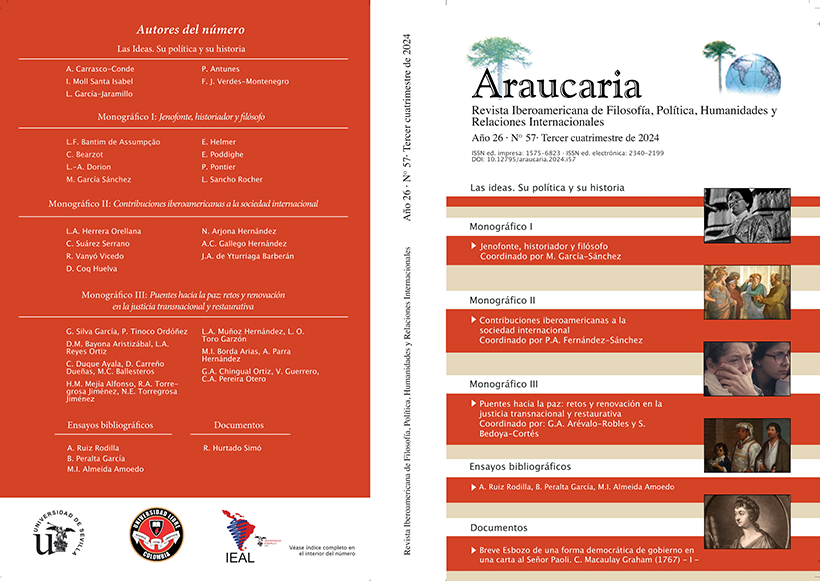De la ira de Medea a la rabia de Audre Lorde
DOI:
https://doi.org/10.12795/araucaria.2024.i57.01Palavras-chave:
Medea, ira, pasiones, Séneca, daño, Audre Lorde, feminismo, injusticiaResumo
La figura de Medea, mujer y extranjera, es el hilo conductor que trata de ofrecer un análisis sobre la pasión de la ira desde la tradición clásica, que la rechaza como pasión destructiva, hasta la apropiación realizada por el feminismo negro norteamericano de Lorde. Ambas iras tendrán algo en común: Audre Lorde hablará de la rabia por la misoginia, homofobia y racismo sufrido y en Medea habrá ira por la misoginia y xenofobia de la época. Para ello en primer lugar el artículo analiza el vocabulario relacionado con la cólera y la ira tanto en griego y en latín. A partir de ahí desarrollan dos hilos. En el primero se ofrece la lectura tradicional del mito de la Medea infanticida que es la que se encuentra en la tragedia de Séneca y que se relacionada con su tratado filosófico Sobre la ira. De ese modo se convierte a Medea en exemplum e contrario y contraimagen del sabio estoico. En el segundo se recupera la otra tradición del mito según la cual Medea no fue la que mató a sus hijos sino los corintios. Este segundo hilo del enfoque clásico de la ira para mostrar su validez como herramienta de cambio.
Downloads
Referências
Se ha adoptado el sistema tradicional de notas a pie de página.
Downloads
Publicado
Como Citar
Edição
Seção
Licença
Las ediciones impresa y electrónica de esta Revista son editadas por el Secretariado de Publicaciones de la Universidad de Sevilla, siendo necesario citar la procedencia en cualquier reproducción parcial o total.Salvo indicación contraria, todos los contenidos de la edición electrónica se distribuyen bajo una licencia de uso y distribución “Creative Commons Atribución-NoComercial-SinDerivar 4.0 Internacional”








